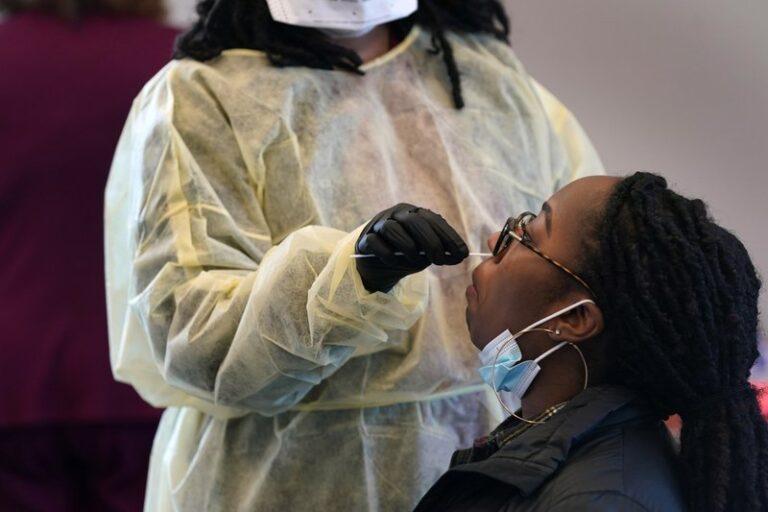
(AP) — When a Halloween party sparked a COVID-19 outbreak at North Carolina Agricultural and Technical State University, school officials conducted rapid screening on more than 1,000 students in a week, including many who didn’t have symptoms.
Although such asymptomatic screening isn’t approved by regulators and the 15-minute tests aren’t as sensitive as the genetic one that can take days to yield results, the testing director at the historically Black college credits the approach with quickly containing the infections and allowing the campus to remain open.
“Within the span of a week, we had crushed the spread. If we had had to stick with the PCR test, we would have been dead in the water,” said Dr. Robert Doolittle, referring to the polymerase chain reaction test that is considered the gold standard by many doctors and Food and Drug Administration regulators.
With President Joe Biden vowing to get elementary and middle school students back to the classroom by spring and the country’s testing system still unable to keep pace with the spread of COVID-19, some experts see an opportunity to refocus U.S. testing less on medical precision than on mass screening that they believe could save hundreds of thousands of lives. As vaccines slowly roll out, they say the nation could suppress the outbreak and reopen much of the economy by easing regulatory hurdles to allow millions more rapid tests that, while technically less accurate, may actually be better at identifying sick people when they are most contagious.
“Our whole testing approach, which has failed, has tried to tackle this pandemic as though it’s a bunch of little medical problems,” said Dr. Michael Mina, a Harvard University testing specialist. “Instead, we need to take a big step back and say, ‘Wait, this isn’t a lot of medical problems, it’s an epidemic. And if we resolve the epidemic, we resolve the medical problems.’”
The U.S. reports about 2 million tests per day, the vast majority of which are the slower, PCR variety. The initial tests developed to detect COVID-19 all used the cutting-edge technique, which quickly became the standard at U.S. hospitals and labs. It also became the benchmark for accuracy at the FDA, which has greenlighted more than 230 PCR tests but only about a dozen rapid tests. Priced as low as $5, the quick tests look for viral proteins, which are generally considered a less rigorous measure of infection.






